Building Life Skills through the Livestock Project
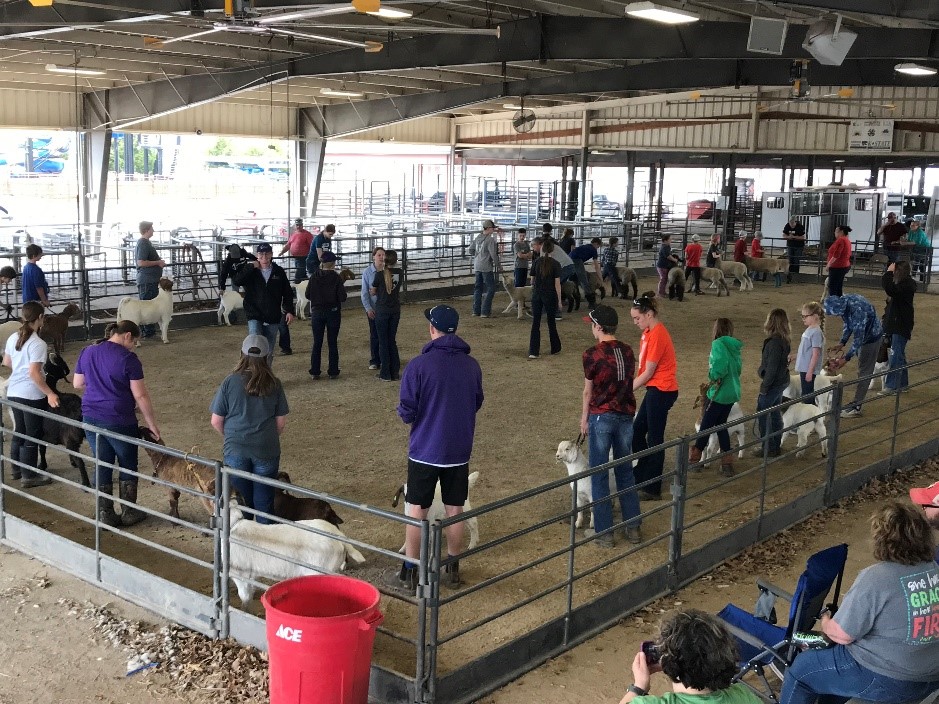 Spring and summer are a very busy time of year for 4-H’ers active in livestock projects. From raising baby animals, to feeding, cleaning, preparing for and attending shows, there is never a shortage of things to keep youth busy! Species of livestock projects include swine, beef, goat, and sheep. Other animal science projects in 4-H include poultry, rabbits, dog, and horse, but aren’t typically considered traditional “livestock.”
Spring and summer are a very busy time of year for 4-H’ers active in livestock projects. From raising baby animals, to feeding, cleaning, preparing for and attending shows, there is never a shortage of things to keep youth busy! Species of livestock projects include swine, beef, goat, and sheep. Other animal science projects in 4-H include poultry, rabbits, dog, and horse, but aren’t typically considered traditional “livestock.”
The livestock project takes a lot of time, energy and can also be financially taxing for 4-H’ers and their families. When a family decides if they want to participate in a livestock project, they must weigh the pros and cons. There are many benefits to raising and showing livestock through the 4-H program; some immediate but most benefits carry through adulthood.
-
Raising animals teaches kids to care for other living things and to be empathetic thinkers.
Animals rely on their caretakers daily for food, water, cleaning, grooming, and health care. Raising livestock teaches kids to care for something other than themselves. When kids are responsible for another living being, they quickly learn cause and effect and that their actions create reactions. The one-on-one time with their animals teaches compassion and patience.
-
Raising animals raises and improves kids’ emotional and mental health.
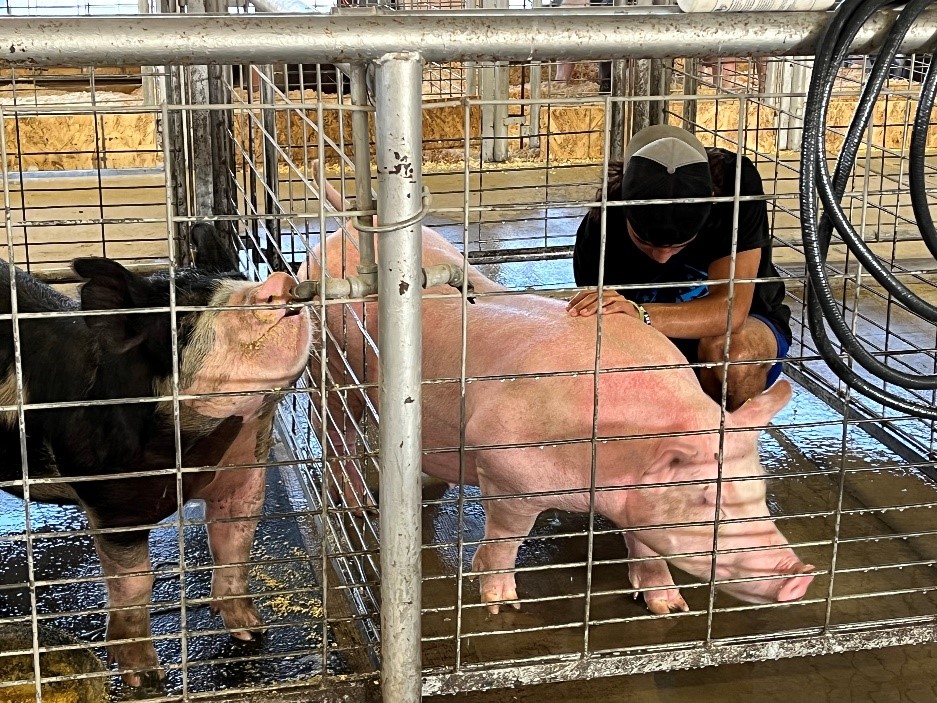
During stressful times, taking care of an animal can be therapeutic. Being alone and spending quiet time can be meditative. Repetitive actions like brushing, raking, and even cleaning can help clear busy minds.
-
Raising animals teaches kids about natural life cycles.
Bottle raising a goat from birth, watching and nurturing it through its growth cycles, possibly experiencing it also go through gestation and birth, are all wonderful learning experiences for a child to learn the natural process of life. Even experiencing raising an animal from start to market is an important lesson for youth to understand how their product feeds the community and the world.
-
Raising animals promotes health and increases activity.
There is no doubt that raising livestock is a lot of very hard work! It’s a great way to get kids outside, in the sun, breathing the fresh air, while building and strengthening muscles and stamina. Working on physical projects from start to end gives kids a sense of accomplishment.
-
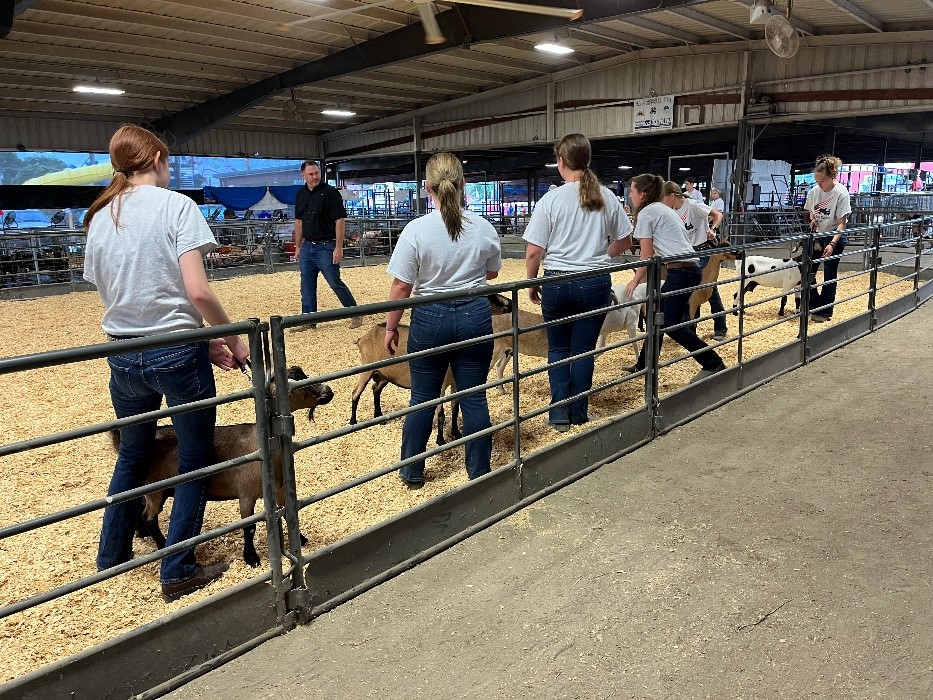 Raising animals decreases screen time.
Raising animals decreases screen time.
The more things a kid has to do, the less time they will spend on technology and video games! Taking care of livestock takes a lot of time and energy. If given a daily to-do list, kids will stay busy and if their work is productive and meaningful, most times they will be happy to be occupied with things other than technology.
-
Raising animals teaches resiliency, determination, and courage.
One of the best things about 4-H is that it provides a safe space for failure. This teaches youth that they can and should try again. Not everything works out how they want or envisioned, but that’s ok. When working with animals, there is so many unexpected variables. These challenges teach kids to problem solve, be patient, persistent, and adaptable.
-
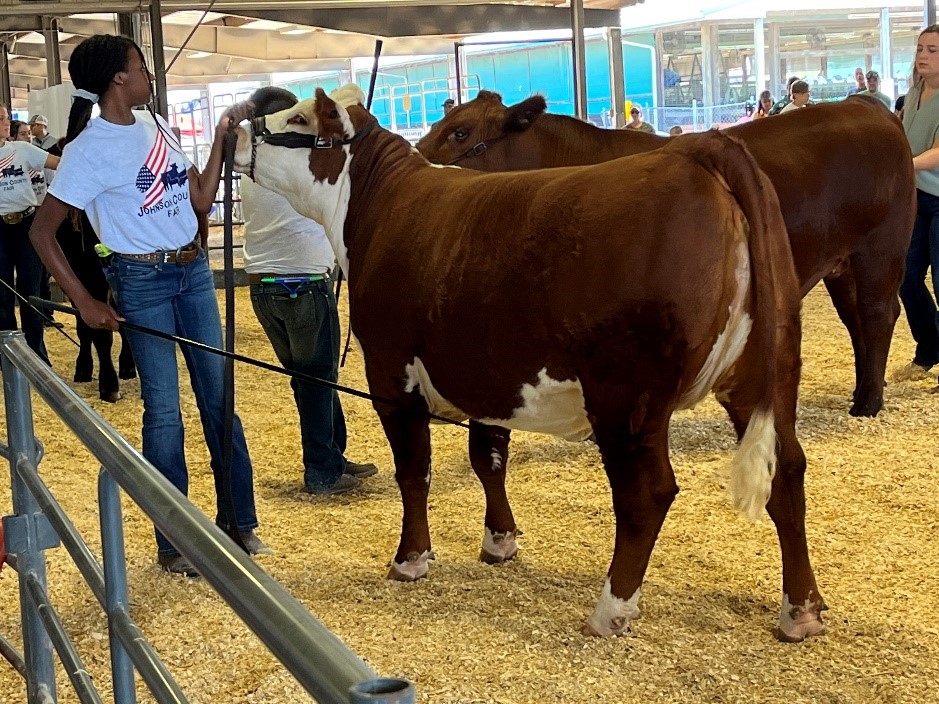 Showing livestock teaches healthy competition and sportsmanship.
Showing livestock teaches healthy competition and sportsmanship.
The show ring introduces kids to competition. Healthy competition teaches resilience and perseverance which prepares youth for real-life situations. Showing and exhibiting livestock teaches kids the importance of sportsmanship. They learn at an early age how to win and lose humbly. In addition to competing against others, showing livestock teaches kids how to be internal competitors with themselves and that there is always room for improvement.
-
Showing livestock teaches leadership skills.
In any livestock project, older youth have the opportunity to mentor, teach and pass on their skills and experience to younger youth. Youth can coach and teach others, organize and run clinics and camps, and even organize and run fundraising activities.
-
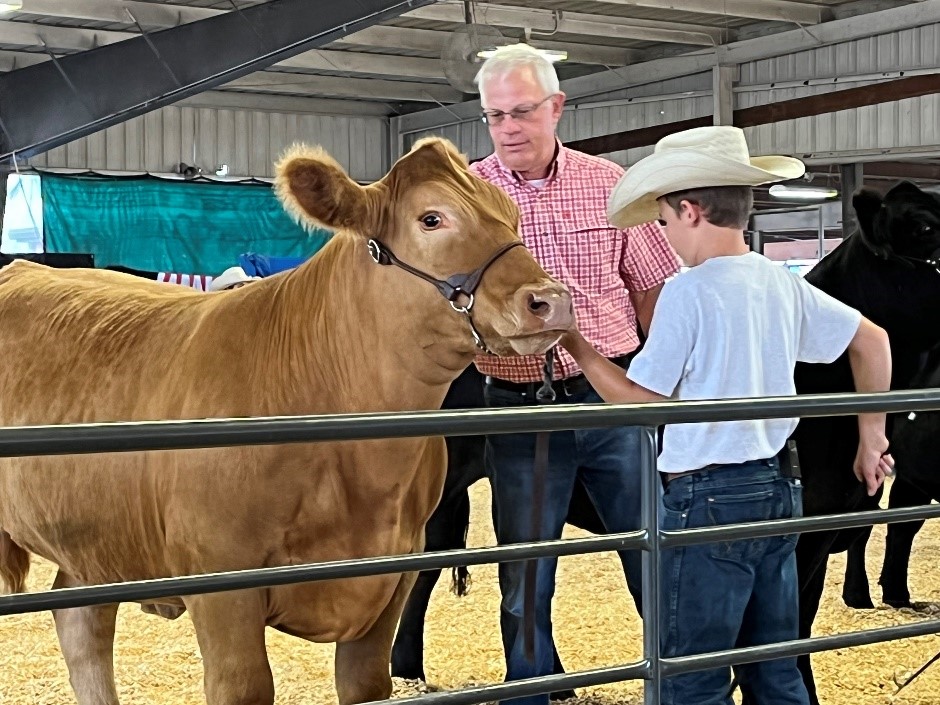 Showing livestock builds relationships.
Showing livestock builds relationships.
One huge aspect of 4-H is positive adult role models and mentors. Adult volunteers who have experience and passion in a specific area serve to guide kids through the project. Livestock families become friends as they grow closer through the experience of competition and even traveling. Youth develop friendships with other youth outside of the ring based on common interests. Relationships that started in the show ring and on the farm, oftentimes extend to lifelong friendships.
-
Showing and raising livestock teaches financial skills.
Raising livestock can be an expensive hobby! When youth raise livestock, they learn how to manage their “investment,” set and manage budgets, plan for future projects, fundraise, and more. When kids participate in the financial piece of their livestock project, they are better prepared when entering the workforce and can be more financially stable as adults.
Raising and showing livestock requires a lot of hard work and dedication, but teaches many life skills and lessons that cannot be learned anywhere else. In addition, many hours spent with animals and friends leads to fond memories, friendships, and strong leaders for the future.
Sources:
Benefits Youth Gain from Showing Livestock | UMN Extension
Why I Choose to Raise my Kids with Farm Animals - Thrive Global